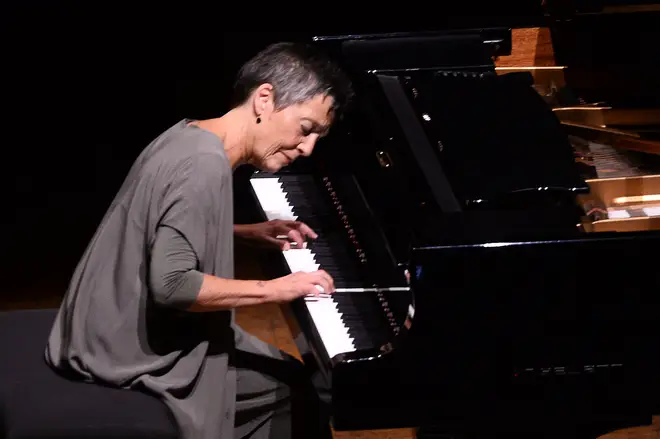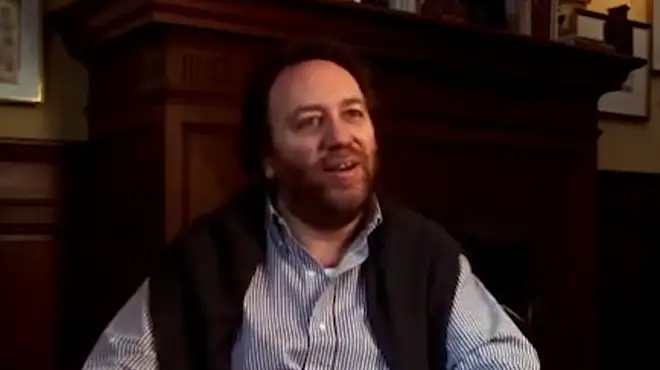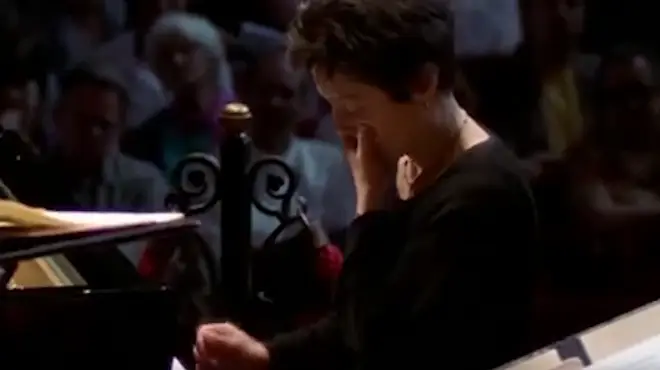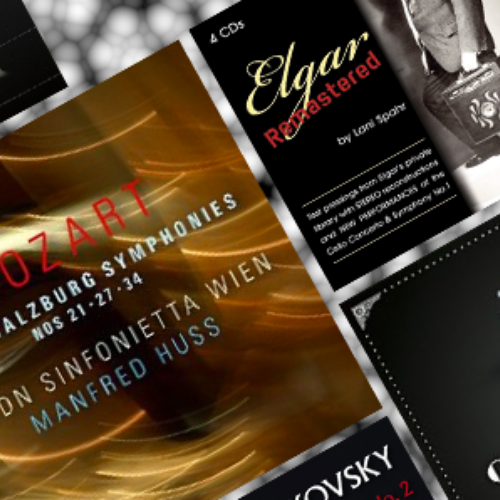‘It was very scary’ – what went through Maria João Pires’ mind in THAT viral wrong concerto
1 March 2024, 18:12

‘It was very scary’ – Maria João Pires’ on THAT viral wrong concerto! | Classic FM
Maria João Pires didn’t realise she had prepared the wrong Mozart piano concerto until the orchestra started playing, to a live audience. We asked what was really going through her mind at that moment.
Listen to this article
In 2013 a clip of two classical music icons, Portuguese pianist Maria João Pires and Italian conductor Riccardo Chailly, performing some Mozart went viral.
Nothing about the concert was out of the ordinary. The music was a Mozart piano concerto, the venue was the Concertgebouw in Amsterdam, and the occasion was an open rehearsal, for a full-house audience of 2,000 people.
But after being drafted in at the last minute to replace another musician, Pires had misheard the title of the Mozart concerto on the phone… and learned the wrong one.
It’s an extraordinary moment of pained realisation and miraculous recovery, that has gone viral several times over the last 10 years. And last weekend, Classic FM presenter Joanna Gosling shared the video on Twitter and reinstated its place in the Internet hall of fame all over again.
A few days later, Joanna sat down with Maria to speak about the famous incident, and the thoughts that were racing through her mind during those crucial moments at the piano, 25 years ago.
“It was the general rehearsal, and I was replacing another artist,” Pires recalled. “It was crazy, because they called me at 9:00 in the evening and I was in Paris – and I remember I heard K.488 on the phone and it was K.466.

Maria Joao Pires was expecting another Mozart concerto
“The 488 [Mozart’s Piano Concerto No.23 in A major], I had played a couple of weeks before. So, I arrived for the rehearsal and I said, I don't know if I remember the concerto very well, but I mean, it should be okay because I played it a couple of weeks ago.
“And then when they started playing, it was the 466 [Mozart’s Piano Concerto No. 20 in D minor]!”
It had been 10 months, Joanna prompted her, since she had played the Concerto No.20.
“Yes, perhaps 11 months, something like that,” Pires said. “And that’s the moment where you start losing the memory of the details.
“That’s how the memory functions, you know. And when people see this panic, they perhaps don’t know that the reality is, we lose our memories after just a couple of months.”
When the realisation hit, Pires was scared. “I normally feel very stressed on stage,” she said. “It’s not the stage, it’s not the public – it’s the responsibility. I feel OK with the people. But being on stage and being responsible for something can give me some panic.
“So I… I didn’t have a panic attack, but it was very scary.”
Read more: Audience member proposes in shock moment at Texas symphony orchestra concert

“You know, the great conductors like Chailly, they have a lot of self-confidence,” Pires added. “And I am not very self-confident.
“So he said, ‘You can do it, you played it, you can do it no problem, just do it’ – and he continued. It never stopped. Even though it was a public rehearsal, the hall was completely full. I was scared, that’s all.”
At the time, in that moment of panic, did Pires feel that Chailly handled the situation correctly?
“Yes, he was right. But conductors are normally very confident about themselves! So there's a gap between the conductor and the soloist. Different challenges, different works, different attitudes, you know.
“But I think all is about acceptance,” she added. “And also, the love you can feel for the people. It's like a friendship. You love the people at a certain moment, you feel they are there to listen to music, and then we share the music – and that helps a lot.”

For so many watching the clip at home, it feels like an extraordinary feat for Pires to have moved so seamlessly from a state of utter disbelief, rising panic and horror, to a state of total calm and control when her cue to start playing finally comes. But Pires doesn’t see it that way.
“I must say, it’s a bit unrealistic when people think this is something extraordinary. I don’t think it’s extraordinary. This would happen with all of us – because I have a normal memory. I don’t have an exceptional memory. And there are musicians who have an exceptional memory. In my case, I am very, very average.”
Surely now, the pianist feels she must rigorously check which music she has prepared before every concert?
“Yes,” she smiled. “Because I must say, this happened to me another two times in my life!
“But it was not filmed. So in total, three times. I hope it never happens again.”

Pires added that focus and meditation now play a large part in her music practice.
“Even in my daily practice or during concerts, during rehearsals, I practise [meditation] a lot. You can listen, you can hear. You are conscious about all your surroundings at the same time.
“You stay with yourself, you stay where you are,” she added. “Sometimes you have doubts. But the answer is not only stubbornly analysing the score, but also being able to hear – to listen.”
Was this an incident, perhaps, that can only be explained by the magic of music itself?
“I don’t know if I can describe that, but I should say that if you choose to be with music, this magic you talk about, it’s always happening because the magic is in the music,” Maria told Joanna.
“Music is the road between the human being and the universe.”



